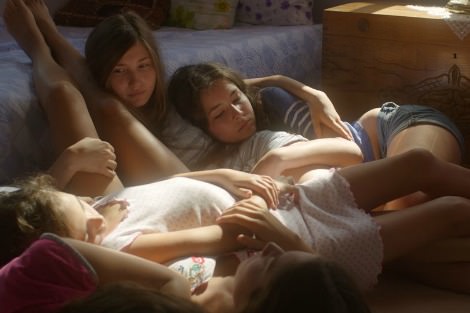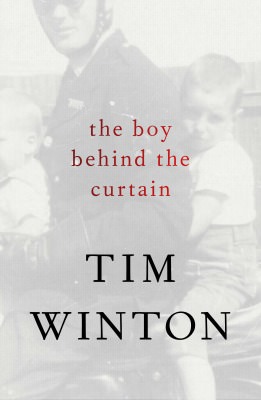Author: Tim Kroenert
There are more than 60 results, only the first 60 are displayed here.
Become a subscriber for more search results.
-

ARTS AND CULTURE
- Tim Kroenert
- 22 February 2017
6 Comments
It is the story of two 17th century Portuguese Jesuits who travel to Japan to locate their former mentor, who is said to have renounced his faith, and to spread Catholicism. They find the local Christian populations have been driven underground, under threat of torture and execution. The lesson they come to learn against this fraught backdrop is that the living out of religious faith and the strengths and limitations of ordinary humanity cannot be considered in isolation from each other.
READ MORE 
-

ARTS AND CULTURE
- Tim Kroenert
- 14 February 2017
1 Comment
There's a gag about sitting in the back of the bus, the realities of segregation dismissed with a giggle; references to university sit-ins and firebombings come via the eyes of a cartoonishly earnest character. Meanwhile the White characters are either the object of contrived sympathy, or too thinly drawn to invoke genuine menace. Accusations of 'cultural appropriation' might be uncharitable, but the short shrift given to the real, continuing hardships of Black experience raises questions about objectives and authenticity.
READ MORE 
-

ARTS AND CULTURE
- Tim Kroenert
- 08 February 2017
1 Comment
The Academy, it seems, has listened. After the #whiteoscars furore of past years, three of this year's Oscar nominees for Best Picture, Moonlight, Fences, and Hidden Figures, are films with predominantly (if not entirely) Black casts, and focused on the experiences of Black characters. Cast and crewmembers from all three have been nominated in various categories. To be fair, all three films would have demanded attention, with or without the recent controversy around awards season racial bias.
READ MORE 
-

ARTS AND CULTURE
- Tim Kroenert
- 01 February 2017
2 Comments
The chaos embedded in these characters' world is made clear through physical symbols - Chiron flees from bullies into an abandoned drug den, where he finds a used syringe and holds it up to the light like a talisman - and by the camera, which trails and circles the characters, or locks onto their faces, a conduit for their grief or desperation or lust or rage or joy. Bursts of actual violence or dramatic confrontation are rare. Where they occur it is their emotional content that is most confronting.
READ MORE 
-

ARTS AND CULTURE
- Tim Kroenert
- 18 January 2017
2 Comments
The perspective is Jackie's at all times; JFK himself rarely appears onscreen, and often is just a shoulder or a jaw glimpsed in profile at his wife's side. Portman's is a fine portrayal, displaying at all times an abiding grace and dignity, whether she is washing her husband's blood off her face, or facing down the questions of an astute journalist who may or may not be on her side. In the making of the Camelot myth, Jackie models the presidential funeral on Abraham Lincoln's, by this very process rejecting her brother-in-law Robert's doubts that the Kennedy presidency ultimately amounted to much at all.
READ MORE 
-

ARTS AND CULTURE
- Tim Kroenert
- 14 December 2016
3 Comments
Amid the noise of Batman battling Superman, the Avengers turning against each other, and middle aged fanboys whingeing about the Ghostbusters franchise being revitalised with an all-female lead cast, 2016 has actually been a pretty solid year for movies, both in and outside of Hollywood. We haven't had time to see them all (we have a magazine to publish, after all) but nonetheless here is a list of our ten favourite films reviewed in Eureka Street this year.
READ MORE 
-

ARTS AND CULTURE
- Tim Kroenert
- 07 December 2016
Families can be sites of great love and nourishment, and also of pain and trauma - often, all of these things, to varying degrees. The Family Fang focuses on the lives of adults bearing the mental and emotional ramifications of what can fairly be described as an abusive upbringing. It provides an illuminating counterpoint to Little Men, in which the close and sincere friendship of teenage boys comes under strain from their parents' 'grown-up' problems.
READ MORE 
-

ARTS AND CULTURE
- Tim Kroenert
- 23 November 2016
5 Comments
The welfare system Daniel experiences is a bureaucratic nightmare, populated by condescending Health Care Professionals, shadowy and calculating Decision Makers, managers who loom over their clients like stern parents, and caseworkers who stifle any human compassion for their desperate supplicants. He is grilled by a welfare officer about every aspect of his health except the only relevant one, his heart. Later, he runs afoul of the agency's 'online by default' processes. Daniel has never used a computer in his life.
READ MORE 
-

ARTS AND CULTURE
- Tim Kroenert
- 15 November 2016
1 Comment
In science fiction, stories of first contact typically have as much to say about humanity as they do about the extra-terrestrial creations of the author's imagination. Mary Doria Russell's 1998 novel The Sparrow explores the consequences of a Jesuit-led mission to a planet near Alpha Centauri, which are profound for the planet's sentient inhabitants and devastating for the human travellers. As in The Sparrow, language is central to Quebecois filmmaker Denis Villeneuve's philosophically piquant first contact story Arrival.
READ MORE 
-

ARTS AND CULTURE
- Tim Kroenert
- 26 October 2016
8 Comments
Perhaps it is the high egocentricity of Woody Allen's films that makes it difficult to separate the man from his work. More so even than Roman Polanski, the allegations of sexual abuse that have been levelled at Allen in life lend an unsavoury flavour to his art. Even revisiting Annie Hall these days, Allen's classic and endlessly innovative 1977 romantic comedy is tainted retrospectively by a sneaking sense of sexism, if not outright misogyny. The same is true of Café Society.
READ MORE 
-

ARTS AND CULTURE
- Tim Kroenert
- 26 October 2016
1 Comment
'When I was a kid I liked to stand at the window with a rifle and aim it at people.' So begins the opening, titular essay. It is a singularly arresting entre to an essay that charts the author's complex relationship with firearms (part awe, part terror), by way of commenting on the place of guns in Australian society. In this collection of essays Winton adopts this mode frequently, weaving (sometimes deeply) personal narratives into stirring, thoughtful commentary on a broad range of social and political issues.
READ MORE 
-

ARTS AND CULTURE
- Tim Kroenert
- 19 October 2016
Our first glimpse of Jesse, a 16-year-old model recently arrived in LA, is of her sprawled on a sofa, scantily clad and smeared with fake blood. Later, during her first professional shoot, she is ordered to strip naked, and to endure being smeared with gold paint by the photographer's own hand. Another model boasts about the routine cosmetic surgery she undergoes to maintain the object that is her body. In the eyes of the industry, Jesse as an 'object' is already perfect.
READ MORE 